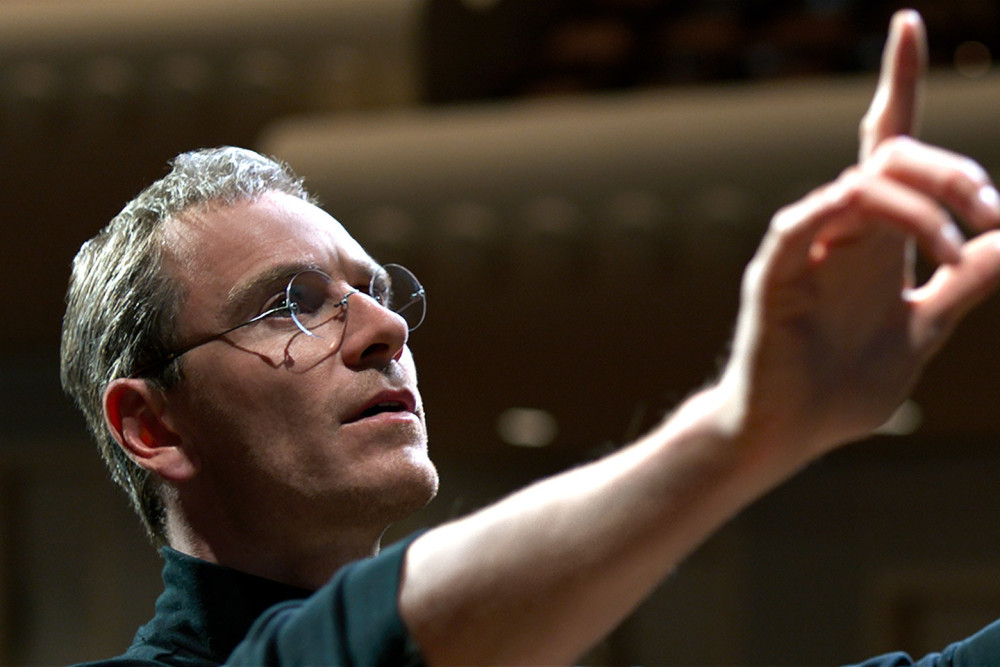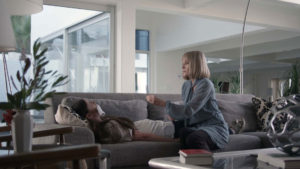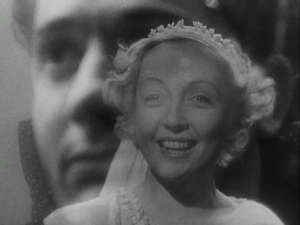
Steve Jobs isn’t exactly a sympathetic figure, albeit a popular one, which makes him the perfect subject for an Aaron Sorkin script. Just look at what the man did with Mark Zuckerberg in The Social Network five years ago. Of course, Danny Boyle is no David Fincher, so while Steve Jobs features a lot of what makes Sorkin’s scripts so punchy and satisfying, it’s also a film bogged down by a director who doesn’t know how to let the words and the characters do the heavy work.
Steve Jobs splits itself up into three big events — the 1984 Macintosh launch, the 1988 NeXT launch, and the 1998 iMac launch — each one lasting about forty minutes, give or take. Splitting the film up in this way allows Sorkin the convenience of having every major player in Jobs’ life in the building at the same time, essentially milking his usual “walk and talk” storytelling technique for all it’s worth. By no means is this a bad thing, but the fact that he occasionally indulges in flashbacks that offer up nothing but background that he could have simply included in dialogue proves distracting.
Not nearly as distracting though as Danny Boyle’s aimless direction, outside of his smart choice to use 16mm, 35mm, and digital photography for each respective period of Jobs life. Where Fincher was restrained and chose to focus on making the dialogue pop rather than delivering constantly shifting visuals (though Jeff Cronenweth makes it infinitely appealing to look at), Boyle cuts and cuts and cuts and cuts, jumping from Person A to Person B to an exit sign to a close-up of another scene that isn’t happening to an audience waiting for Jobs to speak to sweeping around both characters to Person B to Person A, all within the span of under a minute. There’s also an awkwardly inserted montage of everything that happens between ’88 and ’98 that proves an unnecessary, hyperactive detour from the three scene gimmick, but folks who need to be spoon-fed history that doesn’t necessarily matter in the grand scope of the film will eat it up. He rarely, if ever, gives his actors a chance to breathe on screen and deliver their lines uninterrupted, and it’s a shame considering Sorkin’s script is actually pretty tight when it’s allowing characters to be as awful as they damn well please; sentences full of spite rolling off everyone’s tongue in the best way possible.
When he’s not letting them be assholes — or at the very least effective people who only have an interest in the product they’re making/selling or themselves — Sorkin, sadly, dives into his worst mode: sentimental dad. With each individual scene, the writer painfully tries to add a layer of sentimentality by offering up a relationship between Jobs and his daughter Lisa. It’s something that plagued Moneyball and it’s back with a vengeance in Steve Jobs, with each act punctuated by tiresome chats between the two characters. It may offer the actors something other than vitriol to spew, which is appreciated to an extent, but it’s the kind of sap that makes one long for the days when the writer knew how to deliver emotional punches (see: The West Wing).
That said, like most Sorkin scripts, Steve Jobs is made for actors to show off what they can do. Whether or not the camera allows them to be on screen enough and whether or not all of the stuff being presented is accurate or not (it probably isn’t), it’s the fun of watching relationships crumble to the ground (or remain at a perfect plateau) in the face of extreme pressure that makes the film work. Everyone latches onto whatever they can in the script to work with and they make the most out of the bitter relationship between Jobs and every character he interacts with. It doesn’t end up being the Michael Fassbender show, however much the camera might want one to believe it is.
It’s an ensemble piece, with Seth Rogen, Jeff Daniels, Michael Stuhlbarg, Katharine Waterston, and Kate Winslet — whose delightful accent indicates she might have had the best time while shooting this arguably messy biopic — each getting at least one big moment to shine. And while Steve Jobs doesn’t always shine as a whole, it’s not the total mess it could have been considering the clashing nature of Sorkin’s writing and Boyle’s direction.
—
Directed by Danny Boyle; written by Aaron Sorkin; starring Michael Fassbender, Jeff Daniels, Michael Stuhlbarg, Katharine Waterston and Kate Winslet; 122 minutes.
Steve Jobs is now playing in select theaters.



 Derek
Derek
 Isabelle
Isabelle